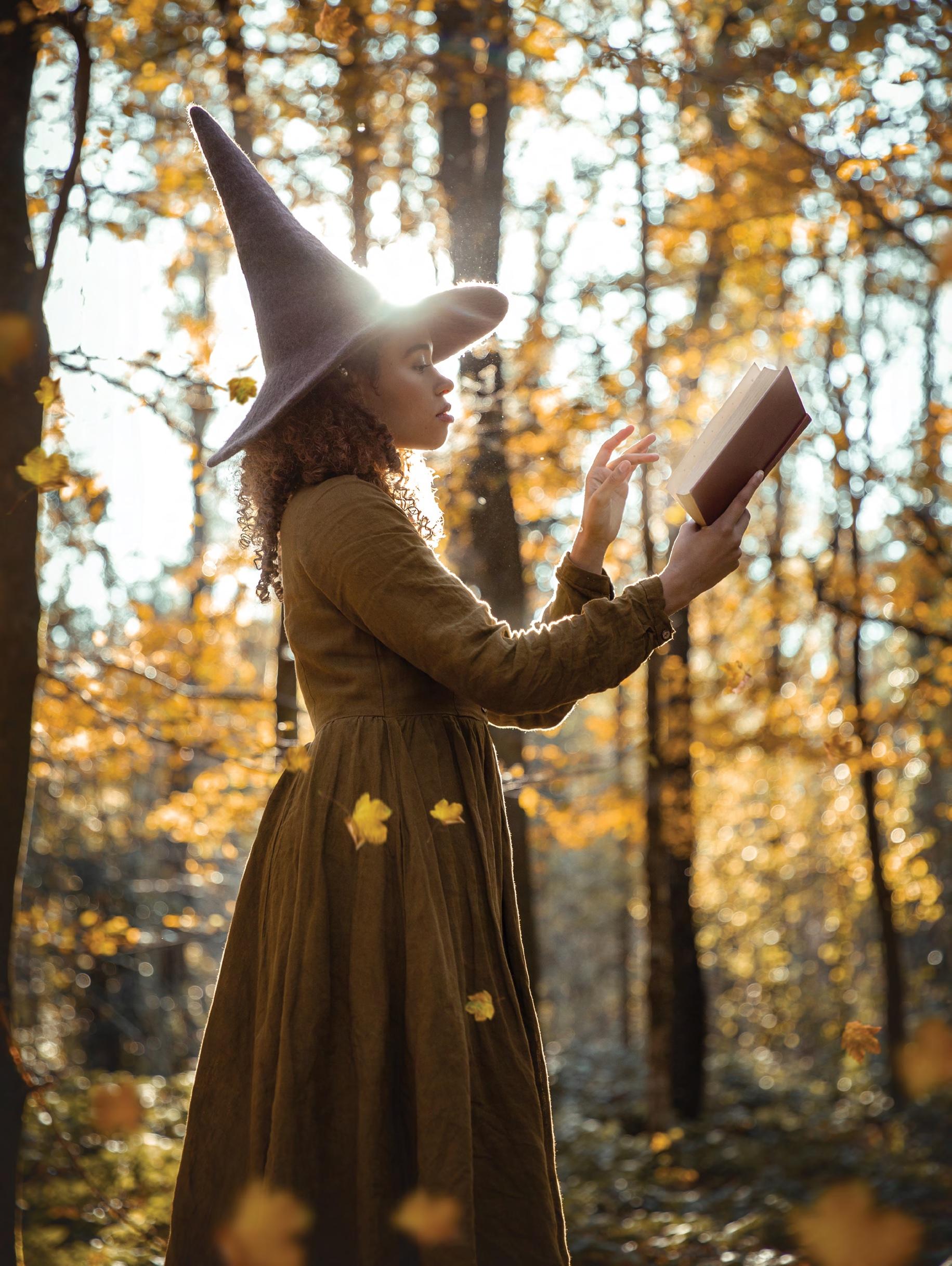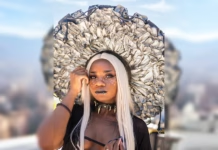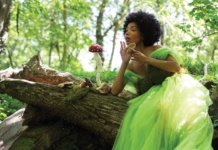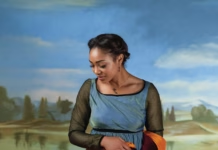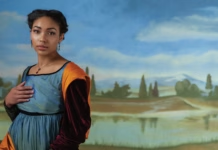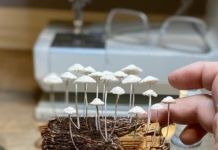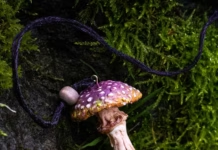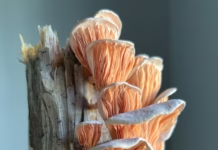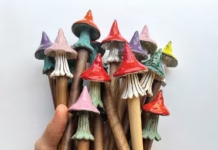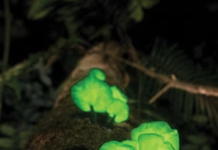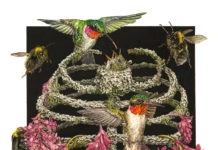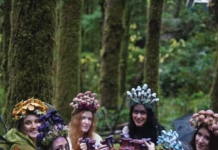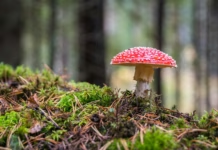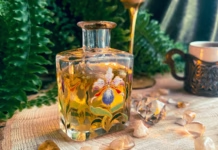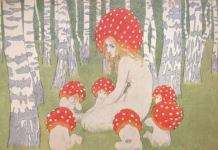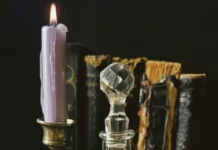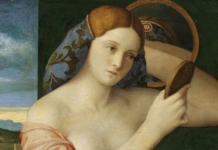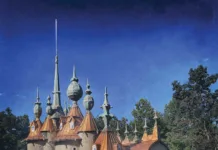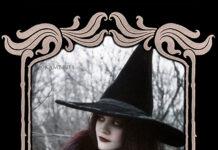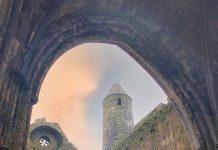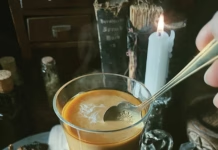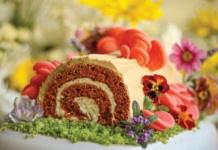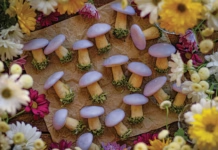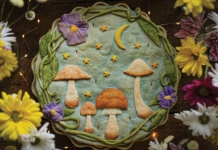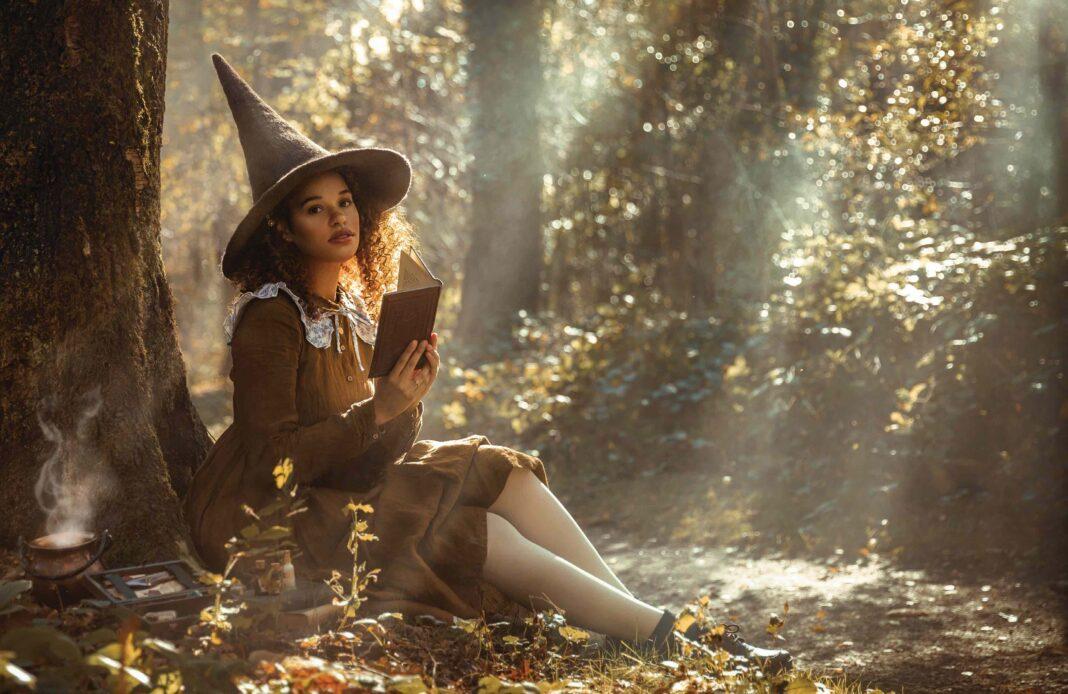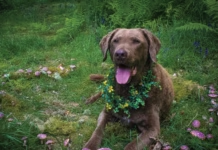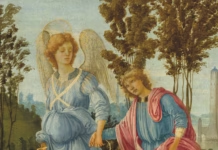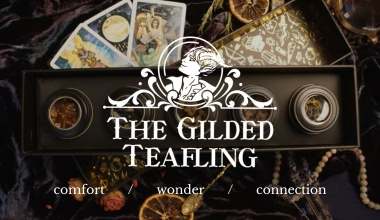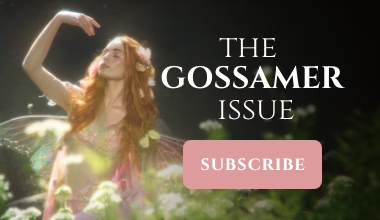Photography By: Natalia Le Fay @natalia_lefay
Model: Nadine Feller @nadiiife
To be a witch is to see the magic in everything. Your kettle is magic. Each morning it transforms cold water into hot, which brews the magical potion that will chase away the dreams—good, bad, prophetic or not—of the previous night. Your dreams are vivid, although you’re not always sure what they mean. Why do you always end up in that train station? Where is that forest you walked through, and who is the woman you met there, wearing a peaked hat? She showed you a book—you remember the pages had pictures of various herbs, with symbols you didn’t understand. She told you something important—what was it? You feel sure that the universe speaks to you in a cryptic language, but you sometimes wish it could be just a little clearer.
You settle down to your work, whatever work you do, and you’ve found the magic in that—whether it’s in a classroom, an office, a restaurant … Somehow, it will take you to a place you’ve dreamed of (a cottage in the forest, a lighthouse on the coast). Whatever it is, you will find a way to make it creative—to learn and teach and make, whether a latte or a legal brief. If it’s not at all what you want (because sometimes work isn’t), you remember the story of Aschenputtel, who was told to sort lentils from the ashes in the fireplace. She was helped by the white birds that sat in the hazel tree she had planted on her mother’s grave—she had friends. Or you think of Vasilisa the Fair, who was helped by the doll her mother gave her. You remember Baba Yaga and think #lifegoals. After all, it’s not a bad thing to be an old woman of mystery and power, who owns her own cottage on chicken legs and commands the morning, day, and night. You pin a picture of Baba Yaga in her garden of flaming skulls to your vision board.
To be a witch is to hear the world talking, to see how the trees bend down when you pick mulberries, feel how the sidewalk offers firm support to your sneakers. This power of perception—your ability to see, hear, feel—is at the center of your magic. It is what gives you the ability to understand animals, to predict the future. You don’t always predict it accurately, but who does? Meanwhile, as you walk to work or the park, cats curl around your ankles, knowing you are a friend. Birds chirp at you from the privet bushes. Dogs push their muzzles into the palm of your hand. It’s as though the universe recognizes you. Even the pond, sitting amid its reeds like eyelashes, or the puddles that form after rain, recognize you and wave or ripple in a friendly way, as though saying, Hello, here you are. How nice to reflect you again.
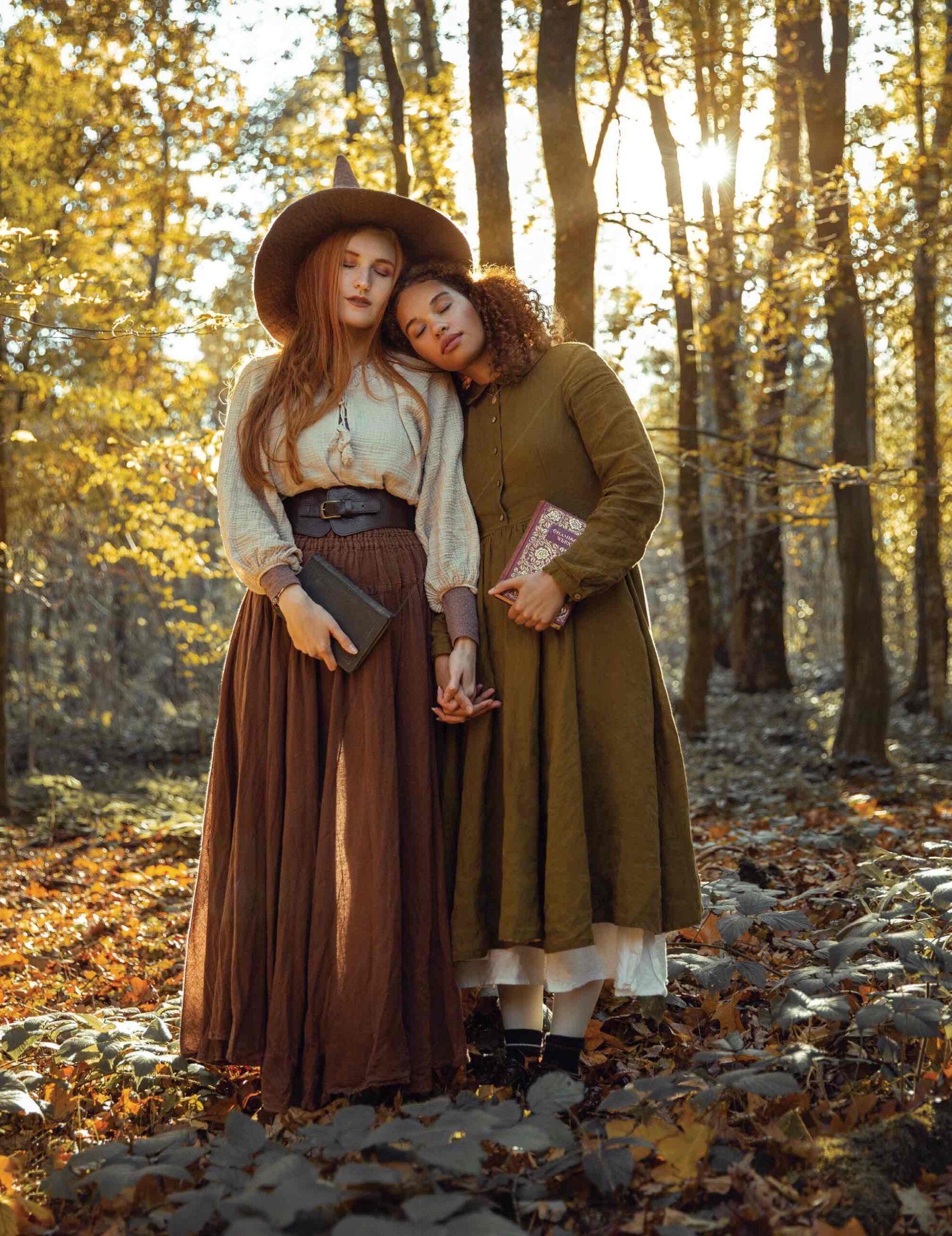
To be a witch is to be always in a process of becoming. Magic is, after all, about transformation. Think of the women transformed in Ovid’s Metamorphosis: Daphne into a laurel tree, Io into a heifer, Arachne into a spider. You suspect it would be more peaceful being a laurel tree, or even a cow chomping in a field, than a Greek nymph. And spiders spin more beautifully than any mortal. In the morning, sometimes you see raindrops sparkling on delicate filaments along your path, and you nod to the spider hanging in her web, as though to say, Good job, little one. I spin too—stories, poems, songs, a life. We are sisters. The old narratives tell you that something magical can come even from trauma. Being a witch does not mean avoiding loss and pain—who among us can do that? But it means at least seeing the possibility that something can come from them—trying to find the magic that will transform darkness into some kind of meaning.
You have mastered transformations. For your lunch, you turn a raw egg into poached, to place on a slice of bread you have toasted in a magical device and then buttered. Later you turn money into a silk blouse, then transform it again by embroidering butterflies on the collar, making it uniquely your own. Every day, you transmute the history of your ancestors into your singular life. You can’t transform everything—there is still sorrow and poverty in the universe. But being a witch means trying, over and over. After all, no spell works perfectly the first time. When you look in a bowl of water or into the mirror, sometimes you scry—it’s never completely accurate, but only the Fates have 20/20 vision. And anyway, you know that the future is, to a certain extent, what you make it. So you dream your dreams, weave your web of intentions, cast your spells. You know that to be a witch is to dance with the universe. You’re not always sure which one of you is leading.
Because you have learned that magic is everywhere, in everything—your cool sheets at night, the light of the moon, the hoot of an owl in the darkness. Magic is elderflower lemonade on a hot day, the sound that the mourning doves make as they perch on the stone parapet of the museum. It’s ice cream and miniature cakes and a girl in a rainbow dress smiling at you before she runs back to her mother. It’s the way the river flows down from the mountains, and the stars in the night sky, and the land of dreams.
It is, above all, your awareness of these things—that is what makes you a witch.
